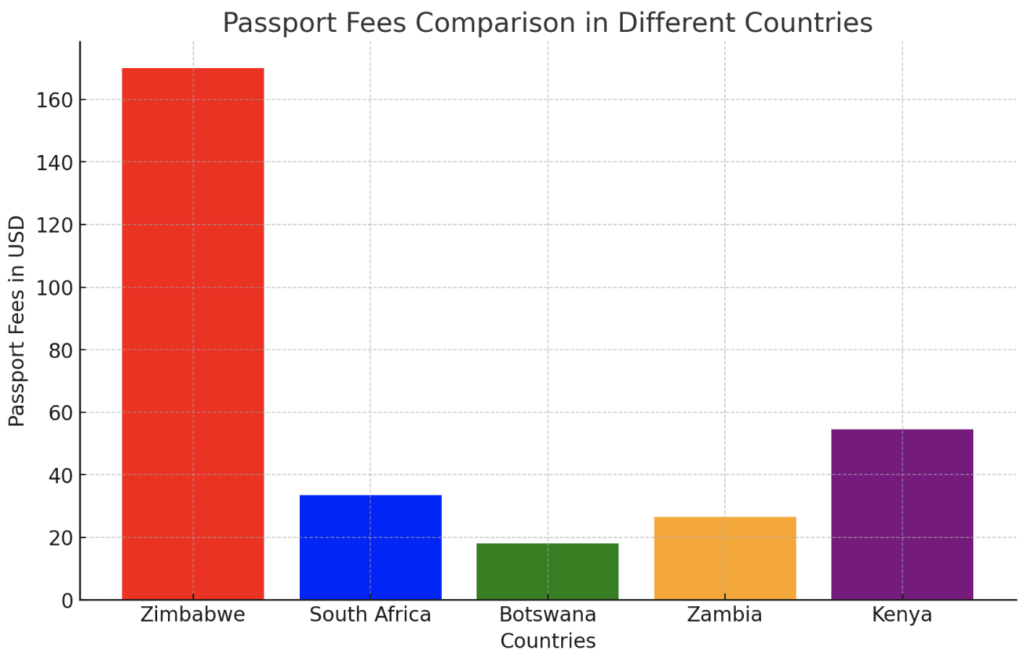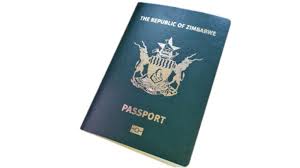The Patriotic Front (TPF) has called on the government to disclose its dealings with Garsu Pasaulis and Semlex, the companies contracted to produce Zimbabwean passports, saying the decision to impose exorbitant passport application fees on Zimbabweans living in South Africa is extortionate.
In line with Statutory Instrument 1 of 2024, which outlines the updated structure for passport fees, the Ministry of Home Affairs and Cultural Heritage directed that all e-passport applications processed at the consulate in Johannesburg, South Africa, be classified as express/emergency applications for US$250.
“We demand that the government immediately reverses this decision and provides a fair and affordable solution for our citizens living abroad. Furthermore, we call on the government to come clean about their dealings with Garsu Pasaulis and Semlex, the companies contracted to produce our passports,” said the opposition party’s Interim Secretary-General, Prosper Ncube.
TPF’s demands for transparency and fairness come amid growing public discontent over the passport fee structure and lack of clarity surrounding the government’s contractual agreements with Garsu Pasaulis and Semlex.
Garsu Pasaulis, a Lithuanian company, was awarded a contract to produce e-passports for Zimbabwe in 2021 under controversial circumstances. The company has reportedly faced allegations of bribery and corruption in Asia and several African countries. Since 2014, Garsu Pasaulis has been owned by Albert Karaziwan, a Belgian citizen, and Semlex Europe, a company he operates and partially owns with his family.
TPF’s criticism also comes on the heels of a petition launched by the Zimbabwean community in South Africa, urging the government to reconsider the US$250 passport application fee, which translates to over R4 700 or R5 000, depending on the exchange rate.
Ncube criticised the government’s actions, stating the fee was a blatant exploitation of citizens already struggling to make ends meet.
He said rather than imposing hefty charges for a passport, the government should disclose its dealings with Garsu Pasaulis and Semlex by providing financial transparency, contractual details, tender process, and profit monitoring information.
“Specifically, we demand that the government provides full information on the following: the exact amount of money that Garsu Pasaulis and Semlex are getting from every passport made; the terms of the contract between the government and these companies; why the contract was awarded without a public tender; and what measures are in place to ensure these companies are not profiteering from our citizens,” said the interim secretary-general.
Ncube added that the fact that the Zimbabwean passport is the most expensive in the region is a clear indication the government is more interested in lining the pockets of its friends than in serving the people.

In stark contrast, passport fees in neighbouring countries are substantially lower. In South Africa, a passport costs R600. In Botswana, a passport is priced at 260 Pula, roughly equivalent to the South African Rand. Meanwhile, an express passport in Zambia costs 700 kwacha, or US$26.46, and in Kenya, a passport costs 750 Kenyan shillings, converting to US$54.44.
“We will not stand by and watch as our citizens are taken advantage of. We demand transparency, accountability, and fairness,” said the interim TPF secretary-general.
Further scrutiny has also been directed at CBZ Bank, which collects passport fees, as it was reported that it stands to benefit significantly from the Garsu Pasaulis arrangement, raising additional questions about transparency and fairness in the deal.

